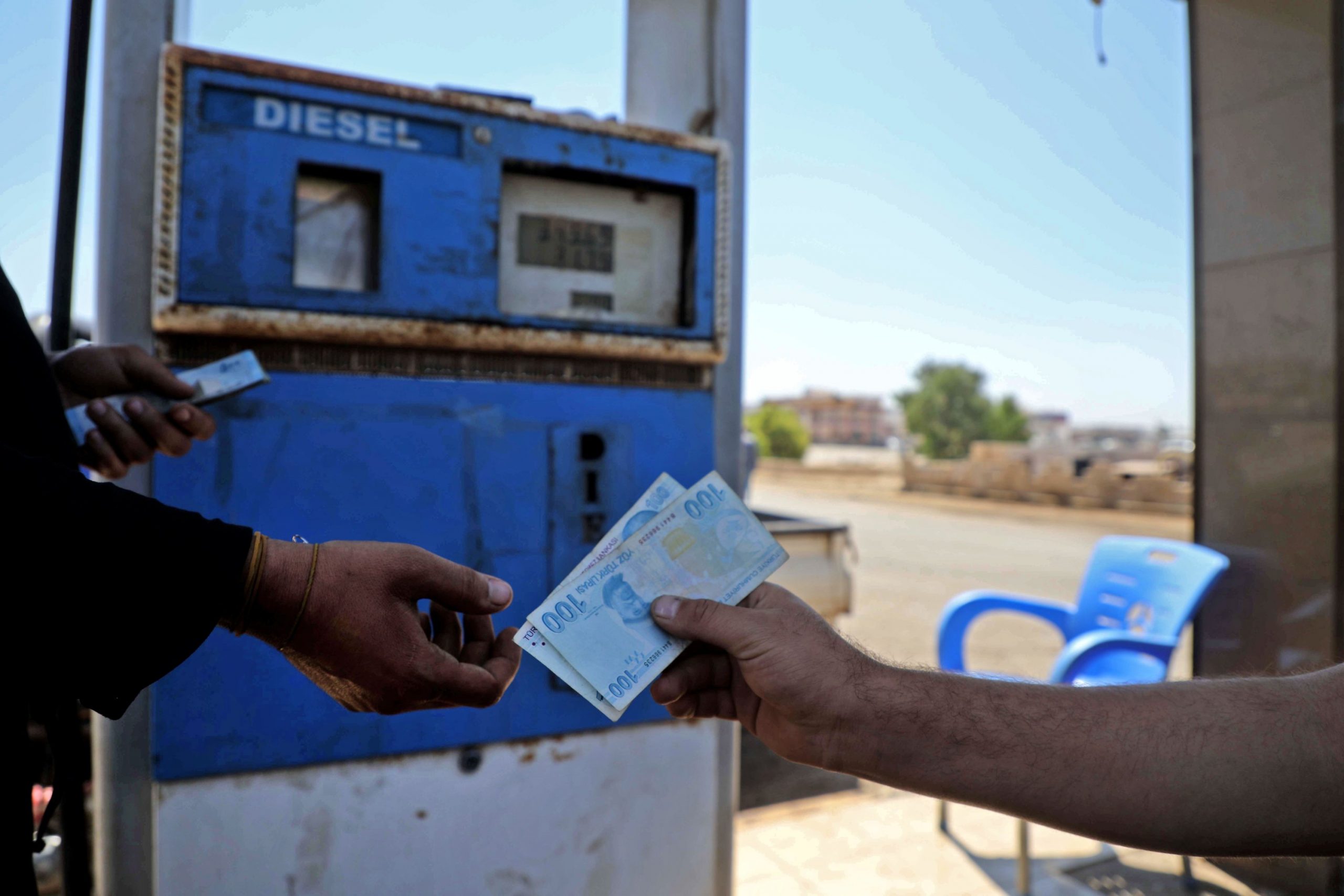Jamil Barakat says it was never easy to sustain a living in Syria’s northwestern Idleb town. But the Turkish lira crisis next door and skyrocketing inflation have made running his small business in Idleb a nightmare.
“Produce prices change every day, and customers are in disbelief,” Barakat tells Al Jazeera. “And of course you have to take into consideration rent and transportation costs.”
The value of the Turkish lira to the U.S. dollar earlier this week crashed to a record low, as President Recep Tayyip Erdogan defends sharp interest rate cuts. Over the past year, the Turkish currency lost about 40 percent of its value, and inflation is approaching 20 percent.
Read Also: Erdogan Continues Turkification, Opens Turkish-language School in Afrin
Turkey’s fiscal crisis and the depreciation of the Turkish lira have spilled over into opposition-held Idleb in neighboring Syria, which adopted the Turkish currency more than a year ago. Some 4.4 million people live in Idleb, about half of whom are displaced.
“It’s not only the monetary connection with Turkey but also the trade connection,” Karam Shaar, the research director of Syrian think-tank Operations and Policy Center, tells Al Jazeera. “Bab al-Hawa, the most significant border crossing with Turkey, is effectively controlled by HTS [Hayet Tahrir al-Sham].”
“Everything here is imported,” Barakat says, pointing at all his fruit and vegetables. “Do we have any orchards or groves here?”
Mohammad al-Ahmad is also struggling to keep his bakery in business, with flour and fuel prices skyrocketing – all brought in from Turkey.
“At this rate, it will cost three liras ($0.24) to produce a bundle of bread, but we have no choice but to keep selling it at 2.5,” al-Ahmad says. “We’ll have to work at a loss but how else will people afford it?”
The Syrian Observer has not verified the content of this story. Responsibility for the information and views set out in this article lies entirely with the author.


